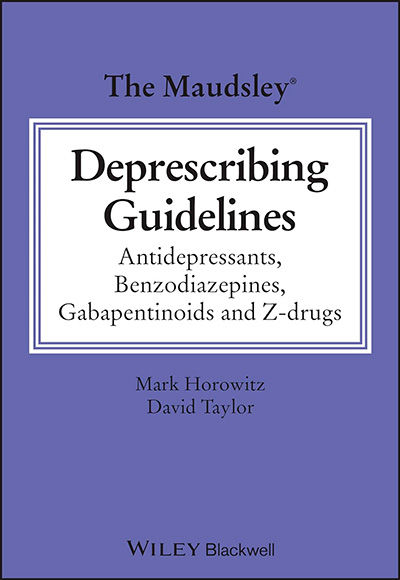Review of Psychopharmacology Reconsidered
- Behroz Dehdari
- Aug 15, 2025
- 3 min read
Over 1.2 million Swedes are on antidepressants, and soon 10% of all children will be considered in need of a stimulant medication. Is this reasonable, or is it high time we reconsider who we choose to medicate, and why?

Professors Belmaker and Lichtenberg argue in Psychopharmacology Reconsidered that it is definitely time for the latter.
They contend that the disease-based model is not supported by current research. Our medicines are not “magic bullets” against specific diseases. Lithium does not cure bipolar disorder. Antipsychotics do not cure schizophrenia. Stimulants or antidepressants do not correct a chemical imbalance in ADHD or depression. This means that one cannot automatically move from diagnosis to treatment — nor that any of these medications necessarily need to be used for life.
The authors address the questionable advantage of SSRIs over placebo. They do not, however, agree with the claim that antidepressants are only placebo [1], noting among other things the expanding definition of depression, as well as earlier studies showing imipramine’s benefits in narrowly defined melancholia.
They affirm that all subjective phenomena have a neurophysiological correlate, and that consciousness is created in the brain. As physicians, we need to understand the processes in the brain that lead to pathology. But since psychiatric diagnosis is based on what an individual thinks, feels, and does — not on what is happening in the brain — we must use terms related to consciousness if we want to understand what the person in front of us is saying. This perspective helps explain why a strong therapeutic alliance has proven to be central to our patients’ recovery.
Could, for example, the suicide-preventive properties of lithium and clozapine be due to the fact that both require frequent medical follow-up? This would align well with Posternak’s meta-analysis, which found that the more often patients met with their doctor, the greater the effect of both SSRI and placebo [2]. What does this imply when we as physicians have less and less opportunity to meet our patients regularly?
The individual chapters on the various drug classes offer an informative review of the historical context of these agents’ development. Pros and cons are discussed in a balanced way. Social aspects are addressed: in the U.S., it is more common for children from lower socioeconomic backgrounds to be diagnosed with ADHD as a result of complaints from teachers, while children from affluent neighborhoods are more often prescribed stimulants. The risks of stimulants are highlighted here more clearly than in any other pharmacology book I have read.
This is by no means an “anti-psychiatry” book, however. Medications are considered to have a central place, but should instead be used according to the pharmacology-based model — to relieve symptoms. The prudent physician bases the choice of medication on a holistic assessment of the symptom profile and risk of various side effects, rather than solely on the diagnosis.
What I miss in certain places are references and a more detailed discussion on, for example, the validity of animal studies. The appreciative stance toward benzodiazepines was also surprising.
Looking ahead, the authors propose that DSM diagnoses should be abandoned when exploring new psychopharmaceuticals. They are cautiously optimistic about psychedelics, but only as an adjunct to psychotherapy, noting that the focus in such cases is on the patient’s subjective experiences, not on what is happening in the brain.
This is a rich and nuanced book that should interest anyone working in psychiatry. It challenges entrenched assumptions without throwing the baby out with the bathwater, and it offers formulations aimed at a much-needed course correction.
Psychopharmacology reconsidered. A concise guide exploring the limits of diagnosis and treatment
Robert Haim Belmaker, Pesach Lichtenberg
Springer International Publishing; 2023
220 pages
978-30-3140-370-5
(Translated from the original review published in Läkartidningen.se)
-----
[1] Kirsch, I. Placebo Effect in the Treatment of Depression and Anxiety. Front. Psychiatry, 13 June 2019. Sec. Psychological Therapy and Psychosomatics Volume 10 - 2019 | https://doi.org/10.3389/fpsyt.2019.00407
[2] Posternak, M., Zimmerman, M. Therapeutic effect of follow-up assessments on antidepressant and placebo response rates in antidepressant efficacy trials. British Journal of Psychiatry. 190: 287–292



Comments